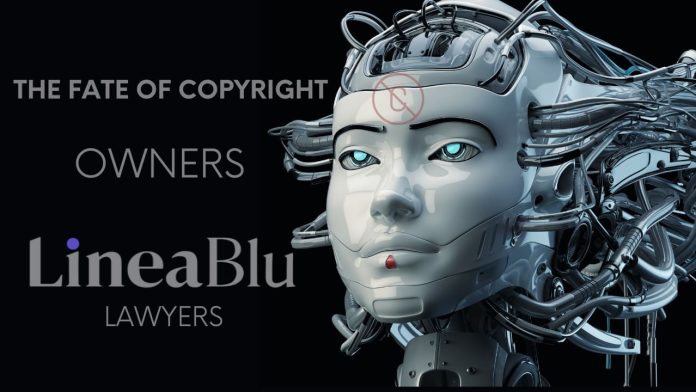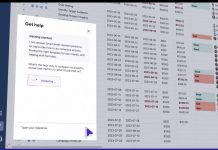Will AI be tamed? Will it halt the benefits humans have grown to welcome? These questions are in the corners of the internet as several court cases emerge against the big AI companies.
It’s not news that Artificial intelligence (AI) has come to stay and that the world has embraced it due to its numerous advantages. However, it has raised several copyright issues as many copyright holders sue AI companies for infringement. One of the court cases involve an author, Sarah Silverman alongside others (plaintiffs), sued Open AI (defendants) alleging direct copyright infringement. The plaintiffs are claiming that their works were used by Open AI to train its large language models (LLMs), without their consent.
The plaintiffs alleged six claims against Open AI as follows:
- Direct copyright infringement
- Vicarious copyright infringement
- Removal of copyright management information in violation of the Digital Millennium Copyright Act
- Unfair competition
- Negligence
- Unjust enrichment
They are asking the court to enter judgment in their favor.
The defendants on the other hand, filed an application requesting the court to dismiss claims 2 through 6 as listed earlier. According to them, the first claim was excluded because the same would be resolved as a matter of law in the later case.
Their grounds for the application is that the plaintiffs failed to state the facts upon which reliefs would be granted. The plaintiffs were made to amend and trim down the claims to the direct infringement claim similar to the case they filed against Meta as directed by the Judge.
It should be noted that the case is pending before the court and this article is not meant to dive into who has a claim or not, which the court will decide on. Rather, it focuses on addressing some legal issues as follows:
- Copyright infringement in an innovative environment
- The doctrine of fair use
Copyright infringement in an innovative environment
With the emergence of innovation, it is not yet certain what the fate of the copyright owners will become. Several of these owners have sought the help of the court to determine the same. Will the courts hear their yearnings, or will the courts toss out their request and support AI companies, or even raise new rules to copyright infringement in the evolving global tech world? Only the future will tell.
Under the United States Constitution (U.S.C.), there are five fundamental rights given to copyright owners: the exclusive right of reproduction, adaptation, publication, performance, and display. They can exercise these rights and authorize the same to others.
The exercise of these rights by someone without the permission of the copyright owner becomes an infringement.
Copyright owners in various suits allege that AI companies did not seek their permission to use their works to train their LLMs, and so have infringed on their rights.
With the rise in these suits, relevant bodies have taken steps to address the issues. The U.S. copyright office in August 2023 requested for public comments on its desire to create a potential rule for the use of copyrighted works by AI companies. As expected, many had diverse opinions. The News/Media Alliance, a nonprofit organization with head office in Washington DC and representing the newspaper, magazine, and digital media industries, commented that AI has the potential to disrupt the creative market despite its great impact on society. It suggested among others, regulation, transparency from AI companies in the use of copyrighted works, and that copyright owners should be compensated for their works used. Another person, Caryn Chong suggested licensing of AI companies.
On the other hand, Rob Rao, the CEO of SCA Robotics commented on the need for AI companies to disclose records regarding the materials used to train their LLMs. He stated that where such is implemented, it should be restricted to just data sets that have clear copyright protection. OpenAI also commented that their models do not have access to trained data upon learning from them and so, there is no possibility of duplicating data. It further stated that it created an avenue where websites can exclude their content from being accessed by OpenAI’s web crawler. On the issue of copyright infringement, it raised fair use as defense. It also recommended adequate legislation as technology evolves.
With several comments from the public and other stakeholders, it is certain that the copyright office will further proceed to ensure the existing gap is bridged in the right direction.This would play a crucial role in future cases against AI companies.
The Verge reported that they received direct comments from the big AI companies on why they are not interested in paying for copyrighted works while training their machines. According to the Verge’s report, Meta commented that consent is not necessary since any fair royalty due to the right holders would not be much. Google regards the use of the protected works for AI training as merely reading a book. Microsoft is of the opinion that consent would impede innovation. While other companies claimed fair use. They may not be wrong with their justifications, perhaps the court may either listen to them or make new rules for them.
It is not arguable that the use of protected rights requires permission from the owner. However, an exception to this is a fair use defense. Under the U.S. Constitution, fair use of protected work in any format does not constitute infringement. This will be further discussed below.
The Doctrine of Fair Use
The fair use doctrine allows a protected work to be used in a certain way or manner without the consent of the owner. It balances the interests of copyright owners with the public interest in access to information and creative expression.
There is no exact definition of what constitutes fair use as this is an equitable rule of reason. Hence, each case is decided on its own facts. However, courts consider the following factors while making a decision:
- The objective of the use including whether it is for commercial use, educational use, or otherwise
- The nature of the work
- The extent of use of the entire work
- The impact of the use on the potential market or value of the copyright
The application of fair use in the AI context is still developing and there is no clear consensus on how it should be applied. Some courts have held that the use of copyrighted material to train AI models is fair use, while others have held that it is not. A case in point is the 2015 U.S. federal appeals court decision which upheld Google’s practice of scanning and indexing millions of books for its Google Books library, as a fair use. The court found that it facilitated research, education, and criticism, while not adversely affecting the market for the original books.
On the other hand, in 2023, the Supreme Court in the Andy Warhol Foundation against Goldsmith held that Andy Warhol’s use of an edited Lynn Goldsmith portrait of Prince did not fall under the doctrine of fair use. This is because the sale of the picture created an identical purpose to the original.
The above cases are significant precedents in deciding on fair use as a defense. It can be seen that the factors determining fair use were applied in the cases. If the use does not have any effect on the potential market then, there is no infringement, but where the same copy is made for commercial purposes, then infringement is likely to occur.
The exploration of fair use intricacies in the realm of artificial intelligence promises to uncover the boundaries of this defense and its potential implications for future AI-related copyright cases.
Conclusion
It is obvious that artificial intelligence (AI) will have a significant impact on the creative industry as it develops. This raises a number of questions for copyright owners. For example, should they be required to grant AI companies permission to use their works for training purposes? Should they be compensated for the use of their works? And what is the scope of their rights in relation to works that are created by AI models? These complex questions do not have easy answers. The law is likely to evolve in the years to come as the courts grapple with the implications of AI for copyright law.
The defense of fair use in the context of artificial intelligence is an intricate subject that will probably be discussed in court for some time. However, while concerns exist, the concept of fair use closes the gap between copyright owners and AI companies by ensuring both copyright protection and a continued development of AI.
With new suits emerging, will AI be tamed and consequently seek express permission from copyright owners? The future court decisions and potential new rules on copyright law will determine that.
All the photos in the article are provided by the company(s) mentioned in the article and are used with permission
About the Author
LineaBlu is a global legal services provider with expertise in Artificial intelligence (AI) among other areas of law.
With the constant evolution of AI all over the world, LineaBlu navigates the intricate field of AI by providing legal counsel and education to clients and the public on issues with AI adoption and regulation.
LineaBlu’s team of lawyers, focuses on providing solutions to emerging AI issues of regulation, intellectual property, data privacy, finance, etc., to ensure clients stay at the forefront of legal compliance and ethical practices.



































